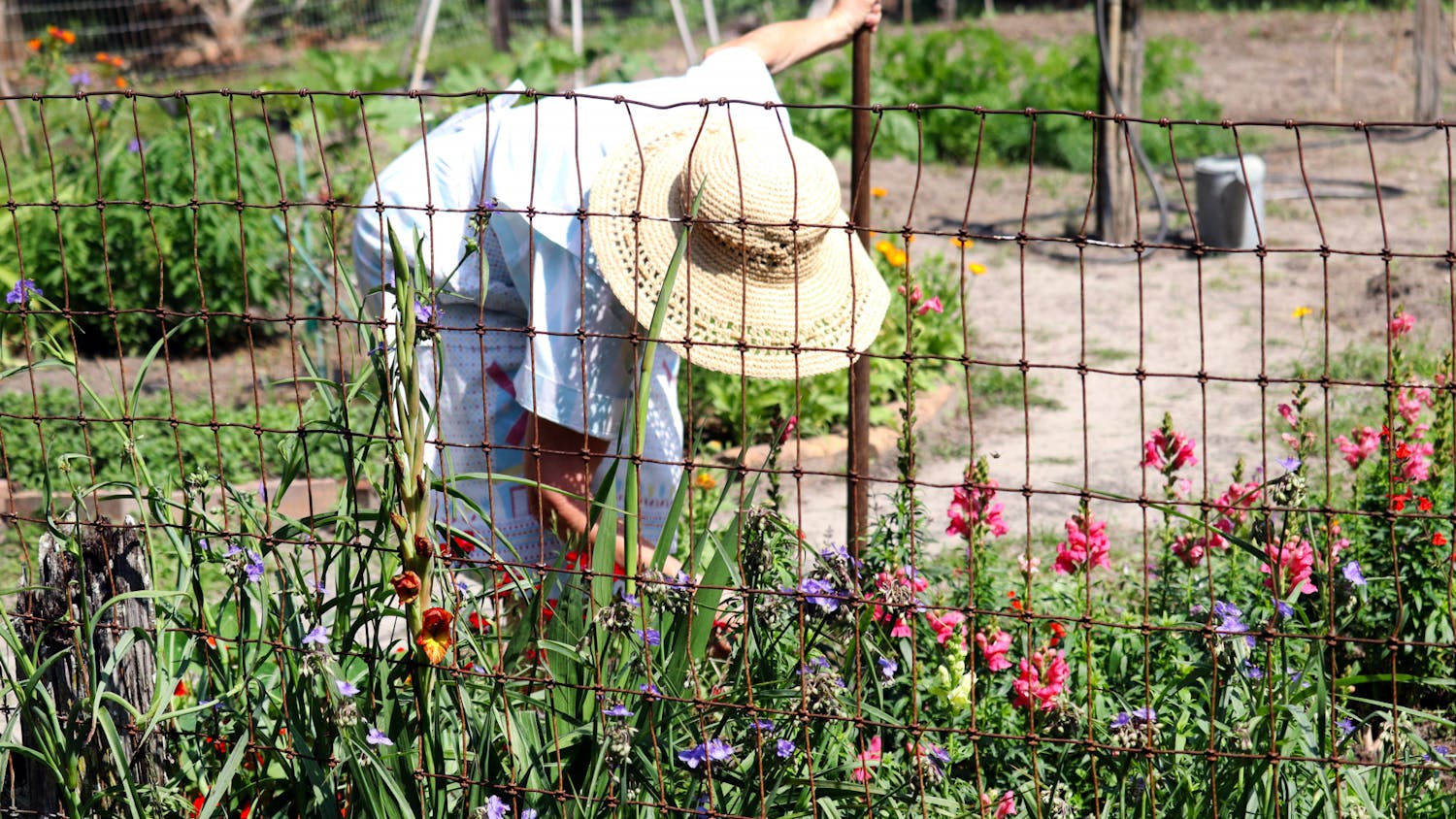Spoilers follow for the film “Past Lives.”
The highly acclaimed film, “Past Lives,” delivers one of the most heartfelt and honest portrayals of love and how fate and destiny factor into real life.
Celine Song dazzles in her directorial debut, “Past Lives.” The movie made its premiere at the 2023 Sundance Film Festival Jan. 21. It expanded to a nationwide release June 30.
Song masterfully tells a story about two childhood friends who reconnect periodically as they move through different chapters of their lives.
The movie is a slow burn as many scenes involve the characters sharing looks with each other or scenes are drawn out. However, the beautiful score, powerful performances and stunning cinematography all make for one of the most tender and beautiful films of the year.
The idea expressed throughout the movie is “in yun,” a Korean word referencing fate and reincarnation. If two people meet in a crowd and their sleeves touch, this must have been caused by events of thousands of years ago, as explained by the Rev. Sun Myung Moon.
“Past Lives” opens with the two main characters Na Young, played by Greta Lee, and Hae Sung, played by Teo Yoo. The pair live in South Korea and are 12-years-old at the time, and despite their young age, there is an obvious connection between them.
It’s quickly revealed that Na Young and her family are immigrating to Canada. To help Na Young make the most of her time left in Korea, her mother lets her go on a date with Hae Sung.
The two children play around a statue of two faces against each other. The framing shows a tree dividing them. The statue helps show that even though the pair are connected at some level, they are separated from truly being together.
In a short but sweet scene in a local park, it’s evident even as kids, the two share a special bond and connection with each other.
In Na Young and Hae Sung’s final interaction with each other as children, the movie hits one of its most beautiful and impactful scenes. As they reach the diverging paths to their homes, Hae Sung stops Na Young.
Hae Sung’s path stays very smooth and straightforward as he will continue to live a traditional Korean life. Na Young stands before a staircase moving up, as she begins to start a new life and chase after her ambitions.
The visual of the scene is enough to move someone. Hae Sung and Na Young simply say “bye” to each other before going on their way, and the movie jumps 12 years.
Na Young, now known as “Nora Moon,” lives in New York as she pursues her dream of being a writer.
Hae Sung is finishing his mandatory military service for males in Korea and is in school to be an engineer.
Nora finds Hae Sung on Facebook and reaches out to him. The two quickly begin to video chat with each other despite the time difference between New York and Seoul.
Building chemistry and a connection between video calls can be hard to do in real life and even harder to portray in a way that connects with audiences in a movie.
However, the two, especially Nora, are able to express so many emotions through subtle facial expressions and the tone of their voice. Their relationship progresses over video calls, but the long-distance relationship faces hardships as the two discover it will be more than a year before either can visit and see each other in person.
Nora eventually breaks things off with Hae Sung because she wants to focus on her writing career and the two have to wait to see each other in person. In the beginning, the calls radiate an energy of joy as the two reconnect. In the final call, the two are immersed in dark rooms, where the others can barely make each other's faces out as they express their sadness.
The two continue to root themselves deeper into the lives they want to live outside of each other. Nora continues to chase her ambitions while Hae Sung follows the path leading to his future job.
The movie poses the question that if they were meant for each other would the two have abandoned their lives or was it always meant to be this way?
There is one final time jump — another 12 years — where Nora is married to someone else and Hae Sung has a full-time job in Korea.
However, Hae Sung finally makes it to New York where the childhood friends are united in person for the first time in 24 years. Nora and Hae Sung walk around New York, which leads to one of the most powerful scenes in the movie.
As the pair catches up with each other in a park, they’re not so subtly surrounded by couples all around them. The two eventually sit down in front of the carousel and Greta Lee’s acting abilities are put on full display.
She makes the most of her subtle eye movements and by the way she looks at Hae Sung, the viewer can see in her eyes everything she wants to tell Hae Sung but doesn’t. She only asks why he looked for her all those years ago.
On Hae Sung’s last day in New York, he, Nora and her husband, Arthur, spend time in a bar as the movie culminates in its beautiful ending.
Nora and Hae Sung share a conversation that hammers home one of the movie’s main ideas: not everyone we love is meant to be the one we spend the rest of our lives with.
The special connections we make can help shape us into the people we are but that doesn’t mean it’s meant to last.
As Hae Sung speaks to Nora he explains how he imagined a life where they end up together. But he realizes that it could never happen because she is “someone who leaves,” and the reason he likes her is because she’s her.
For Arthur, Nora is someone who stays, Hae Sung said.
Love is a special connection not often held between two people. While people move on from others as they progress through life, that love is something that can never be let go of.
Hae Sung and Nora part ways knowing they aren’t meant for each other, but the love they hold for each other is a beautiful representation of the lifelong bond and instant connection two humans can hold.
At the bar, Hae Sung and Nora joke about how they simply didn’t have the 8,000 layers of in yun to be together in this life. They imagined what their past lives could have looked like with connections from being in a forced political marriage, the bird and the branch it sat on or simply two people sitting next to each on a train just because that’s what numbers their tickets read.
In the final scene, Hae Sung and Nora look at each other as he waits for his Uber.
There is a flashback to when they were kids at diverging paths.
They stand in silence, and you can feel the tension as you can see them trying to find the right words to say to each other. They embrace each other, and it's a simultaneous feeling of happiness and heartbreak. Although they will always feel a connection, they know they will never be together.
They part ways, and Nora embraces her husband in tears as she slowly walks back to her home. Arthur and Nora walk up the steps as the closing scene illustrates the idea they truly love each other despite Nora’s past relationships.
The movie leaves the audience wondering what the pair could have done differently to be together or if they made the right or wrong decisions along the way.
Song tells a tale of the unpredictability of life and love. We love people because of who they are, and sometimes that person wouldn’t be who they are if they stay in our lives.
Letting go and moving on is a necessary aspect everyone goes through, but the feelings and experiences don’t always need to be forgotten. It is human to miss that love and cherish it but know it wasn’t meant to be for the rest of your life.
Rate: 10/10
Contact Jackson Reyes at jacksonreyes@alligator.org. Follow him on Twitter @JacksnReyes.
Jackson Reyes is a UF journalism senior and The Alligator's Fall 2023 Sports Editor. He previously served as Digital Managing Editor and was a reporter and assistant editor on the sports desk. In his free time, he enjoys collecting records, long walks on the beach and watching Bo Nix.






